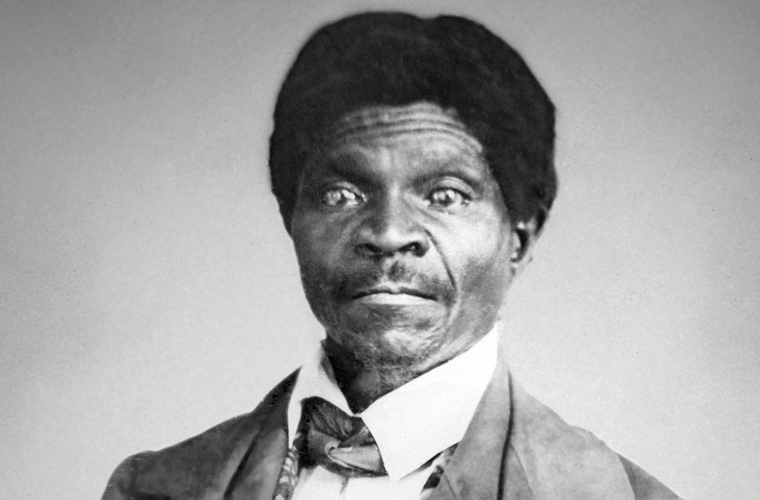Dred Scott, born into slavery in Virginia in 1795, became the central figure in one of the most infamous legal cases in American history. His pursuit of freedom through the courts ultimately led to a landmark Supreme Court decision that deepened the divide over the issue of slavery in the United States.
In 1830, Scott was taken by his owner, Peter Blow, to Missouri, a slave state. After Blow’s death, Scott was sold to Dr. John Emerson, an army surgeon. Emerson took Scott to Illinois and then to the Wisconsin Territory, both free territories where slavery was prohibited. During his time in these free territories, Scott married Harriet Robinson, a woman who was also enslaved. In 1846, after Dr. Emerson’s death, Dred Scott and his wife filed a lawsuit for their freedom in the St. Louis Circuit Court. They argued that their residence in free territories had made them free. The case eventually made its way to the United States Supreme Court, and in 1857, the Court issued its infamous decision.



Chief Justice Roger B. Taney wrote the majority opinion, declaring that African Americans, whether free or enslaved, were not and could never be citizens of the United States. The Court also ruled that the Missouri Compromise, which had prohibited slavery in certain territories, was unconstitutional. This decision effectively invalidated the concept of popular sovereignty and further inflamed tensions between the North and South. The Dred Scott decision was met with outrage and condemnation in the North and further entrenched the divisions between the free states and slave states. It is widely regarded as one of the catalysts for the Civil War, which erupted just a few years later. The impact of the Dred Scott decision extended far beyond the courtroom. It demonstrated the lengths to which the pro-slavery forces were willing to go to protect their interests and sent a clear message to abolitionists and free African Americans that their rights would not be recognized by the highest court in the land.
Despite the devastating outcome of his legal battle, Dred Scott’s case became a rallying cry for those who opposed slavery and sought to bring about its end. His courageous pursuit of freedom through the legal system serves as a powerful reminder of the ongoing struggle for justice and equality in America. In 1857, after more than a decade of legal battles, Dred Scott was finally granted his freedom by his last owner, Taylor Blow, the son of his original owner. Tragically, Scott’s newfound freedom was short-lived, as he died of tuberculosis less than a year later.
The legacy of Dred Scott lives on as a symbol of resilience in the face of injustice and as a reminder of the enduring struggle for civil rights in America. His name is forever etched in the annals of American history as a testament to the ongoing fight for equality and justice for all.

